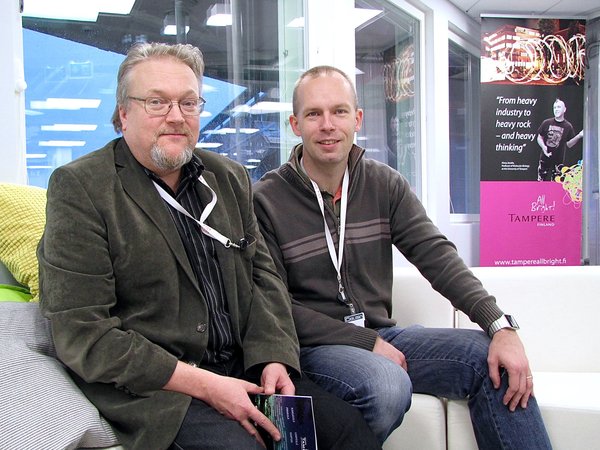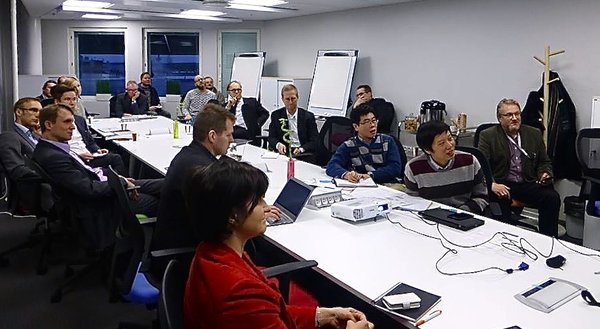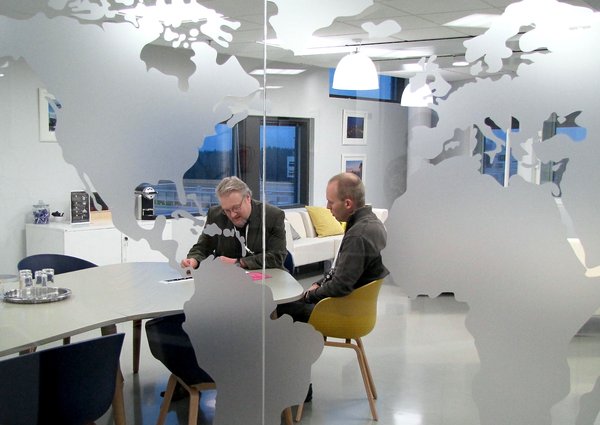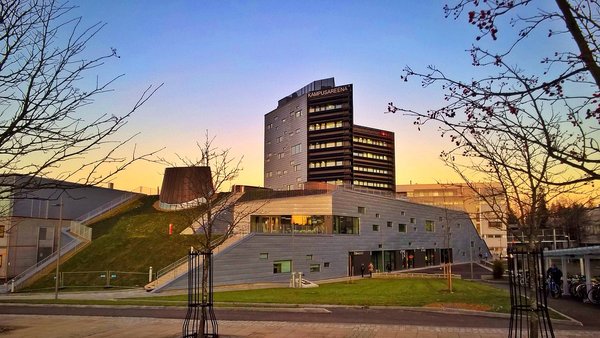Kora supports mobility and an open corporate culture
28.1.2016In autumn 2015, the Kora community, a new kind of international innovation centre, started operations at the Tampere University of Technology campus. Kora spurs local high-tech companies out into the world and softens the landing of international arrivals in the Tampere City Region.

Kora Innovation Manager Timo Lahti can easily name the most common misapprehension about the company’s operations: “One more newcomer that rents out offices.” While Kora’s parent company Regus provides conventional business centre services, subsidiary Kora offers much more to the companies in its community: global machinery and practical tools to support company development.
“I prepare a needs assessment with every company that joins the Kora community: what the company wants to do and what it needs. Based on the assessment, we find suitable people and contacts who help the company get ahead in its operations, for example,” says Lahti.
Lahti describes Kora as a support organisation that helps local high-tech companies to internationalise and functions as a stepping stone to the abroad. Research and competence are naturally at the core of Kora, thanks to its location in the middle of the campus area of Tampere University of Technology, which has worked in extraordinarily close co-operation with industry ever since it was founded. This also interests foreign companies aiming for Finland.
“We constantly have foreign companies that want to conduct research in collaboration or are looking for competence in this field to add to their teams,” Lahti says.
Tampere Region Economic Development Agency Tredea has mapped the Tampere Region’s top fields of expertise. According to the survey, the region has exceptionally bright people to offer in the following fields: intelligent machines, nanotechnology, life sciences, ICT, clean tech & energy, creative business and manufacturing industry. (Learn more about the region’s competence online at www.investtampere.fi.)

Celain was established in 2012 and creates educational games and digital publications. Its CEO Esa Jalonen had time for a short interview, having just returned from Kenya. The company was attracted to the Kora premises due to the convenient location in Tampere and the international nature of the Kora concept.
“The contacts that we have made through Kora to the business angel networks in Europe and Africa, for example, have been a big help to us,” says Jalonen.
Kenya is an interesting market area for Celain because digitalisation is spreading rapidly there, and the public sector is investing in it. There is a need for educational games – and a lot of potential users.
“Our vision is to be a major operator in all of East Africa by 2020,” says Jalonen.

Mobility and openness are also becoming an increasingly strong part of Finnish corporate culture. According to Lahti, we can take our cue from Kora’s offices in Eindhoven in the Netherlands, the spiritual headquarters of the company brand. There, companies already prefer open workspaces over private offices.
“In Finland, companies still ask more for separate offices, but open communication and creating relationships with other entrepreneurs are the direction in which things are also heading here. And that is a good thing; by supporting each other, we can achieve much more,” says Lahti.
Jalonen at Celain confirms that he enjoys the company of similarly minded people who are favourable towards internationalisation. Exchanging information and experiences between companies, for example, makes it easier to go abroad. Jalonen himself promises to share his knowledge of Kenya, for example, as needed, having gained a great deal of it along the way.
“Networks, reliable channels, practical arrangements... I like the idea of sharing information and believe that I will definitely get something in return at some convenient point,” says Jalonen.

Kora started operations on the Kampusareena campus in autumn 2015 and, by the end of the year, 28 companies had moved in. Lahti likes to describe the companies as Kora residents.
“I want this to be such an unaffected and pleasant place for the entrepreneurs that they can truly be at home here.”
Kora is a natural place for university-based companies, in particular, and many residents want to take advantage of research co-operation and the students. The number of residents seems to be increasing rapidly. Lahti rolls out a vision for the future where, within five years, Kora will create a strong brand for the Tampere City Region as a gateway to the world for high-tech companies.
“In practice, it would manifest in filling the current premises of Kora, and the companies that have grown in the Kora community would find new markets, take over more premises on the campus and recruit more people,” says Lahti.
Lue tämä artikkeli suomeksi >